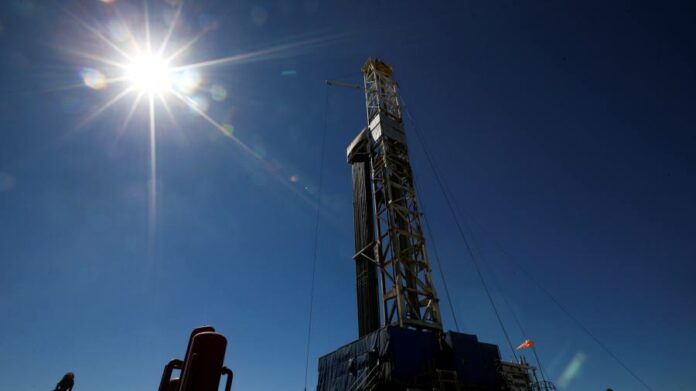Expressing optimism about Argentina might seem an act of madness.
Inflation is running at over 100 per cent a year, the government is funding itself by printing money and crippling exchange controls mean a black market dollar is worth almost double the official rate.
Cut off from international markets after its ninth default in 2020 and suffering a severe drought, the South American food exporter could lapse this year into hyperinflation or even economic collapse.
Yet, look a little further out, and a tantalising series of opportunities come into view. These, together with a new government in October, could offer Argentina its best chance in a generation.
“Nobody doubts this will be a very difficult year,” says Pierpaolo Barbieri, founder and chief executive of the internet bank Ualá. “But in the medium term, four sectors make me very optimistic: agribusiness, energy, mining and digital services.”
giant Vaca Muerta development in Patagonia is changing that. The world’s second biggest shale gasfield, Vaca Muerta will this year start pumping gas down a new pipeline to supply the Buenos Aires region. A second stage will open up exports to Brazil and Chile.
“In two years, we could go from an energy trade deficit of $5bn a year to a surplus of $15bn,” explains Alfonso Prat-Gay, a former finance minister. “There are other low-hanging fruit; I am very optimistic about the potential for copper and lithium. Last year, Chile made nearly $50bn from mining exports while in Argentina it was $5bn. But we share the same mountain range.”
Argentina’s lush pampas, succulent beef and prized Malbec wine mean the nation thinks of itself primarily as an agricultural powerhouse. But another boom is under way in the north of the country, which is rich in lithium, the “white gold” of the electric revolution. JPMorgan estimates that by 2030 Argentina will be the world’s number three lithium producer.
In a nation almost as famous for squandering economic opportunities as for winning football World Cups, the question inevitably arises of whether this vision of prosperity is just another mirage.
“Just because Argentina has enormous possibilities to improve its economy doesn’t mean it will necessarily happen,” said Diana Mondino, an economist at the CEMA university in Buenos Aires. “There’s phenomenal uncertainty over the potential direction of Argentina policy.”
Mondino points out that Argentina has about 7mn citizens living on welfare, many of whom have never worked and have little incentive to do so. Millions more enjoy heavily subsidised energy prices. Removing such perks will be hard.
Marcos Casarín, of Oxford Economics, is sceptical about Argentina, pointing to the IMF’s extreme generosity in rolling over $45bn of Argentine debt while demanding little in the way of belt-tightening. “It’s a super-lax programme,” he says. “It’s giving a false sense of prosperity.”
Much depends on the next government, which will take office in December. President Alberto Fernández and his radical vice-president Cristina Fernández de Kirchner are too unpopular to win again and it is unclear whom the ruling Peronists will field.
The opposition is divided, with a far-right libertarian, Javier Milei, polling strongly against more established candidates, such as Buenos Aires mayor Horacio Larreta or former security minister Patricia Bullrich.
But the most likely scenario is victory for a more pro-business government. If it moves quickly to deregulate the economy, cut spending, and restore confidence in the battered peso, Argentina could take off — and the worse the crisis when it takes over, the easier it may be to adopt radical measures.
“The economy is still functioning even with all the distortions which have been created,” says Fernando Jorge Díaz, an Argentine economist at Citi. “If you can bring some stability, it will start growing very fast.”
Argentina won’t need to do much to look good against the rest of Latin America. Sickly growth is the order of the day from Mexico to Chile, as the region’s mainly leftwing leaders put wealth distribution before wealth creation. The perennial let down, Argentina may yet spring a surprise.







